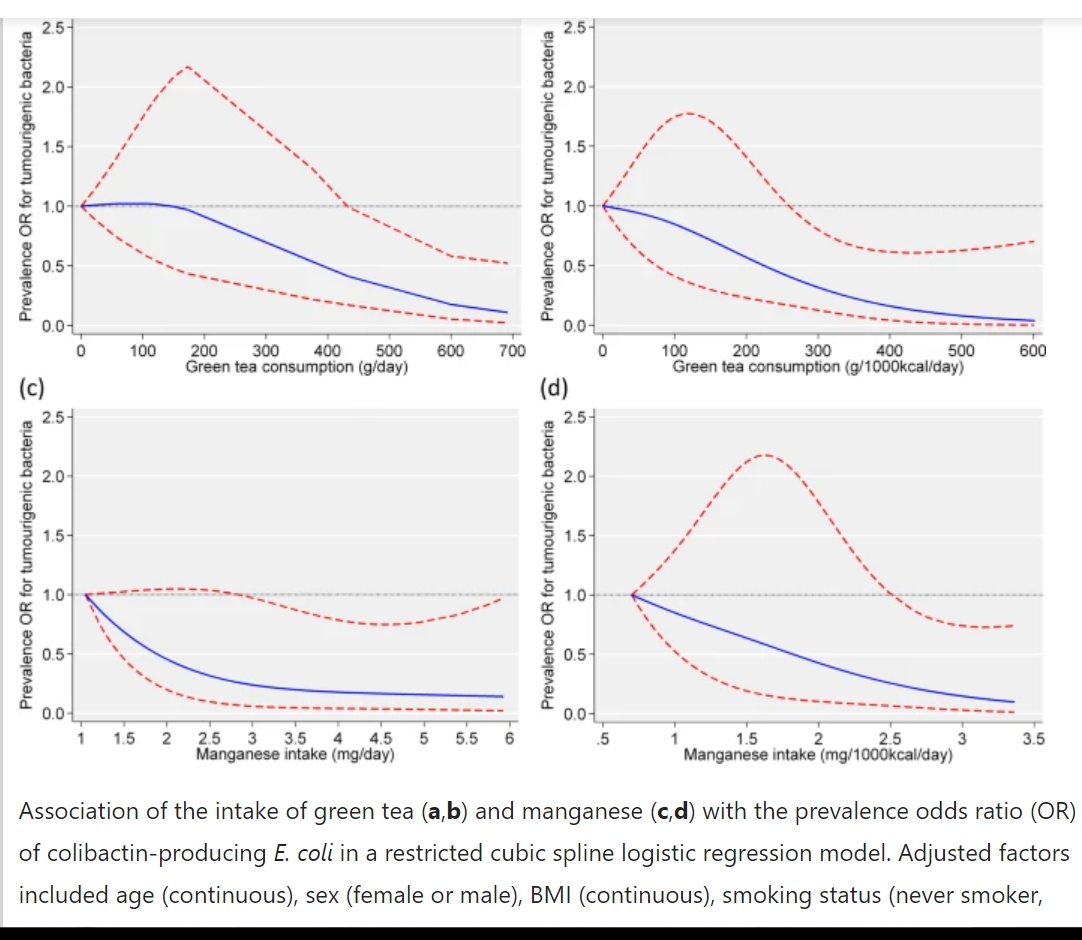Association between dietary intake and the prevalence of tumourigenic bacteria in the gut microbiota of middle-aged Japanese adults
Daiki Watanabe, Scientific Reports volume 10, Article number: 15221 (2020)
The relative contribution of diet to colorectal cancer (CRC) incidence is higher than that for other cancers. Animal models have revealed that Escherichia coli containing polyketide synthase (pks+ E. coli) in the gut participates in CRC development. The purpose of this cross-sectional study was to examine the relationship between dietary intake and the prevalence of pks+ E. coli isolated from the microbiota in faecal samples of 223 healthy Japanese individuals.
Dietary intake was assessed using a previously validated brief-type self-administered diet history questionnaire. The prevalence of pks+ E. coli was evaluated using faecal samples collected from participants and specific primers that detected pks+ E. coli. The prevalence of pks+ E. coli was 26.9%. After adjusting for baseline confounders, the prevalence of pks+ E. coli was negatively associated with the intake of green tea (odds ratio [OR], 0.59 [95% confidence interval (CI) 0.30–0.88] per 100 g/1,000 kcal increment) and manganese (OR, 0.43 [95% CI 0.22–0.85] per 1 mg/1,000 kcal increment) and was positively associated with male sex (OR, 2.27 [95% CI 1.05–4.91]). While futher studies are needed to validate these findings, these results provide insight into potential dietary interventions for the prevention of CRC.














